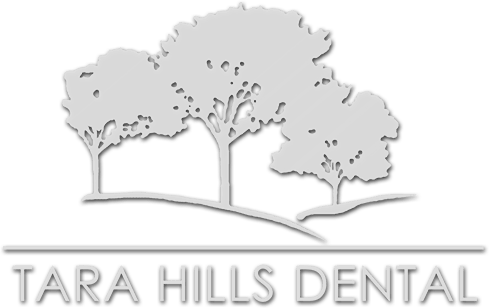Dental Anxiety: Definition, Causes, Symptoms, Statistics, and Allievation
A study conducted by the Health Policy Institute and American Dental Association (ADA) reported that 22% of people that had not been to the dentist in the last 12 months stated that they avoided the dentist due to fear and nervousness. Dental anxiety manifests in a multitude of manners and stems from various aspects of dental offices and dentist visits. Feelings ranging from a fear of pain to a loss of control or embarrassment are leading causes of dental anxiety. If left untreated or unattended to, you may continue to avoid the dentist and resist a vital step in dental hygiene which in turn may cause dental conditions or ailments that will force you to visit the dentist under worse conditions. Learning how to cope with or alleviate symptoms of dental anxiety will help you with your oral hygiene routine by establishing a healthy connection with your dentist and a regular schedule to see a dental health professional.
Dental Anxiety Defined
Fear, nervousness, apprehension, and other stressors brought on by dental settings or the thought of visiting a dentist office. Anxiety that may cause erratic emotions, sweating, trouble sleeping before and after, fear before during and after the visit, physical illness, difficulty breathing, embarrassment and other feelings of fear and stress while planning the appointment, waiting for the appointment and while inside the actual dentist office, feelings that are further amplified while in the dental chair.
Possible Physiological Reasons for Dental Anxiety
- Fear of pain
- Fear of medical settings (needles and anesthesia if it is a dental operation, etc.)
- Loss of control or feelings of helplessness
- Embarrassment
- Traumatic memory, direct or indirect (vicarious) horror story
- Invasion of personal space
Dental anxiety affects large swathes of the population but it is rarely addressed in dental settings or amongst clients and their dentists. Establishing a good relationship with your dentist and the office staff may be your first step in overcoming or circumventing dental anxiety because ultimately the responsibility to make the dentist experience as accommodating as possible falls on all parties involved (note: no one will know of your troubles and fears unless you talk with them). The worst-case scenario is to let dental anxiety dominate your relationship with the dentist, causing a cycle of missing or not scheduling appointments out of fear which leads to deterioration of your dental health, which leads you to worse conditions and a more dramatic need for the dentist but also a deeper fear of the dentist by that point in time.
Overcoming Dental Anxiety or Circumventing Negative Symptoms
Anxieties are harbored in different places for various reasons and can not be solved overnight in most cases, but in terms of dental anxiety there are some best practices you may want to try to mitigate the negative reactions you experience.
- Schedule your appointment for the morning (less busy and you will not have as much time in the day to sit and stew on the premise of a dentist visit later in the day)
- Listen to music during and before the visit
- Speak candidly with your dentist and the dental office staff about your apprehensions and if there is anything within their power to help you get through the visit
- Sedation (at a serve level a light form of anesthesia for general dentistry could be made available)
- Visit the dentist before the appointment to familiarize yourself with the office and the staff
- Ensure that your billing and paperwork is all in order before the visit
- Practice the drive or route to the office before your visit
- Exercise before the dentist office visit
- Bring a supportive friend or family member
Anxiety can manifest both physically and mentally, however giving in to the anxiety will start a vicious cycle that creates a barrier to visiting the dentist that will grow with every skipped appointment or checkup avoided. In severe cases, you may be suffering from dental phobia, or the anxiety may transform into a hard-set phobia, which is a deeply rooted fear of dentists and dental offices. Dental anxiety, especially minor forms or brief moments of nervousness is common, however intense pain and stress brought on by anything related to the dentist is a different condition that is less common and can be viewed as a phobia. Overcoming a dental phobia may require physiological treatment and may be the effect of a deeper condition or experience (consult with a therapist for further explanation and treatment).
Whether you treat dental anxiety with medication, treatment of symptoms or the underlying source of the anxiety, the benefits of maintaining a healthy relationship and schedule with your dentist will help you avoid inflated dental issues and drama which in the long run would be much more difficult to deal with. Not only do more than 1 out 5 people feel symptoms of dental anxiety in relation to visiting the dentist, but 1 out of 5 people also feel anxiety about the condition of their mouth and teeth, and further than that the ADA reported that 1 out of 4 people avoids smiling altogether due to the condition of their mouth and teeth. The daily impacts of oral hygiene are abundantly obvious when viewed in these terms, which makes treatment of dental anxieties or phobias a general well-being priority. The responsibility to participate in the discussion and to help individual patients or the condition of dental anxiety in general fall on both the dentists and their clients. Speak with your dentist or a psychologist today about how to move forward with your dental appointments, or reach out to our Pinole dental office Tara Hills Dental for friendly advice on how to schedule appointments and visit the dentist in the face of overcoming dental anxiety or phobia.
Extended Note on Dental Anxiety:
In the wake of the global pandemic, visiting the dentist’s office may seem a more terrifying prospect than ever before. This is understandable, under current conditions, your anxieties or phobias must consider a greater amount of stressors and potential dangers. The best way to deal with these fears is to speak with your dentist on how they are handling and dealing with the COVID-19 virus and a list of personal-protection practices they have implemented to keep you and their office safe and in control of the situation. An open dialogue with your dentist is the most important step in returning to the dentist’s office.






